Minsk Forum in Warsaw: discussions on war and gender equality
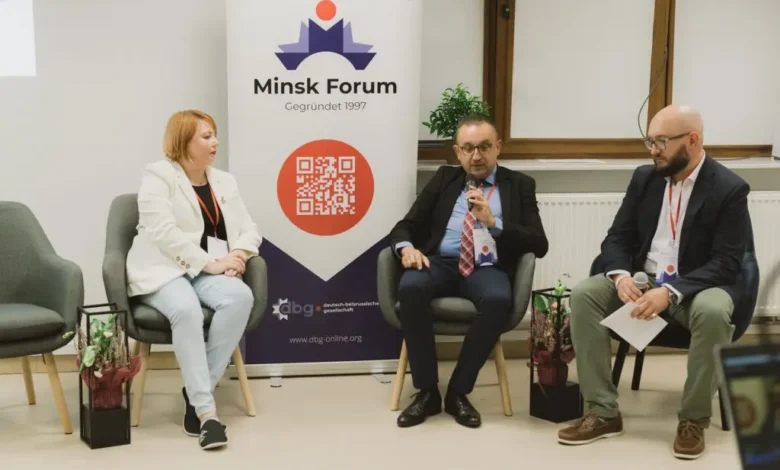
Since 1997, the German-Belarusian Society has hosted the Minsk Forum in the Belarusian capital. For the past three years, this has been impossible, so the forum has been travelling around Europe. This year, the Minsk Forum began in Vilnius, followed by a meeting in Warsaw and upcoming gatherings in Brussels and Berlin. Belsat reports on the events that took place in Warsaw on October 2 and explains their significance for Belarus.
“In the past, the Minsk Forum served as one of the most important, if not the primary, platforms for hosting meetings of civil society representatives, government officials, foreign diplomats, and businessmen,” recalls Aleś Čajčyc, a board member of the German-Belarusian Society. Previously, attempts were made to facilitate a dialogue between Alexander Lukashenko’s regime and democratic forces through German mediation.
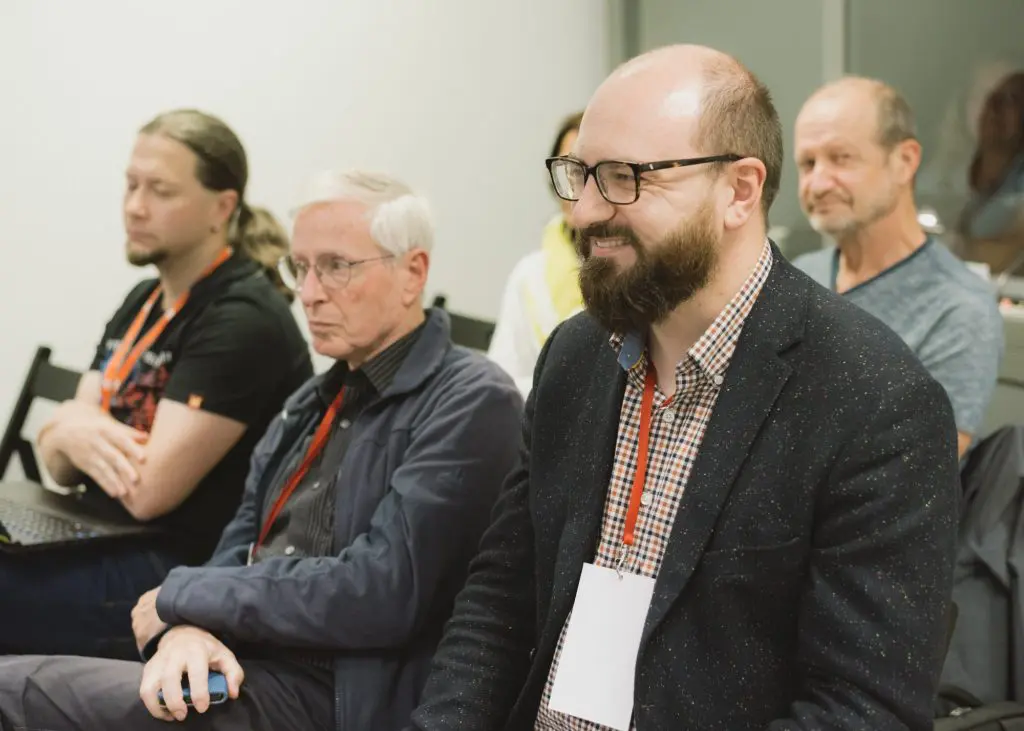
“I wouldn’t say that we have no influence on certain processes here: we have, and the leaders of Belarusian society are here,” says Čajčyc.
The forum, he says, is aiming to bring together the most authoritative and influential members of Belarusian civil society. They, Čajčyc asserts, exert influence not only on Belarusians abroad but also impart their insights on the broader Belarusian society. Even though the “old” leaders had to flee the country, new leaders have not yet emerged to take their place.
The Vilnius segment of the forum focused on topics related to Belarusian identity and the maintenance of international attention on Belarus. The Warsaw meeting focused on two key themes: the pressing issue of Belarus in the context of the ongoing war in Ukraine and the ever-relevant topic of gender rights and LGBT rights.
Belarusians are concerned about issues related to gender, even if they don’t necessarily use the term “gender” to describe them.
The first topic, concerning gender rights and the rights of LGBT people, was moderated by Yuliya Mitskevich, co-founder of the Coordination Council’s feminist group.
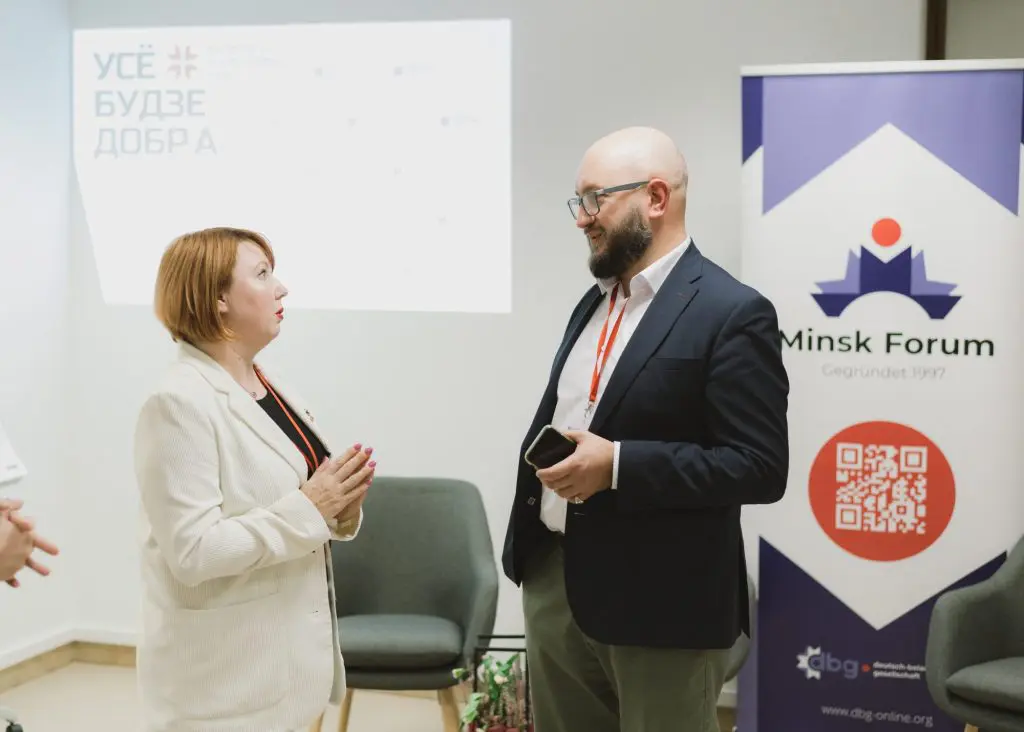
Issues concerning vulnerable groups should be addressed by the groups themselves, and “ordinary people are concerned with more important matters”. However, society is not nescient: the topic is relevant to them, it is just that most simply don’t realize it. Mitskevich elaborated on how the Coordination Council’s feminist group conducted a study to assess the significance of gender-related issues. Belarusians ranked the issue of gender equality as the least relevant. Yet, at the same time, among the most pressing issues are domestic violence and the wage gap between men and women. The problem of sexual harassment cannot be considered irrelevant either. It is that these kinds of issues are often not labeled with the term “gender”, and discussions about their common solutions are infrequent.
Those opposing a more active engagement with gender-related matters argue that the topic is too narrow and not a priority given the ongoing repression in Belarus and the war in Ukraine. However, even amid the ongoing war, Ukraine has made significant strides in the direction of gender equality and violence prevention, such as the ratification of the Council of Europe Convention on preventing and combating violence against women and domestic violence. Media campaigns are actively working to enhance the visibility of women in the war, and LGBTQ+ individuals serving in the Ukrainian Armed Forces are conducting campaigns to emphasize the diversity among soldiers, breaking away from traditional stereotypes of heterosexual male soldiers.
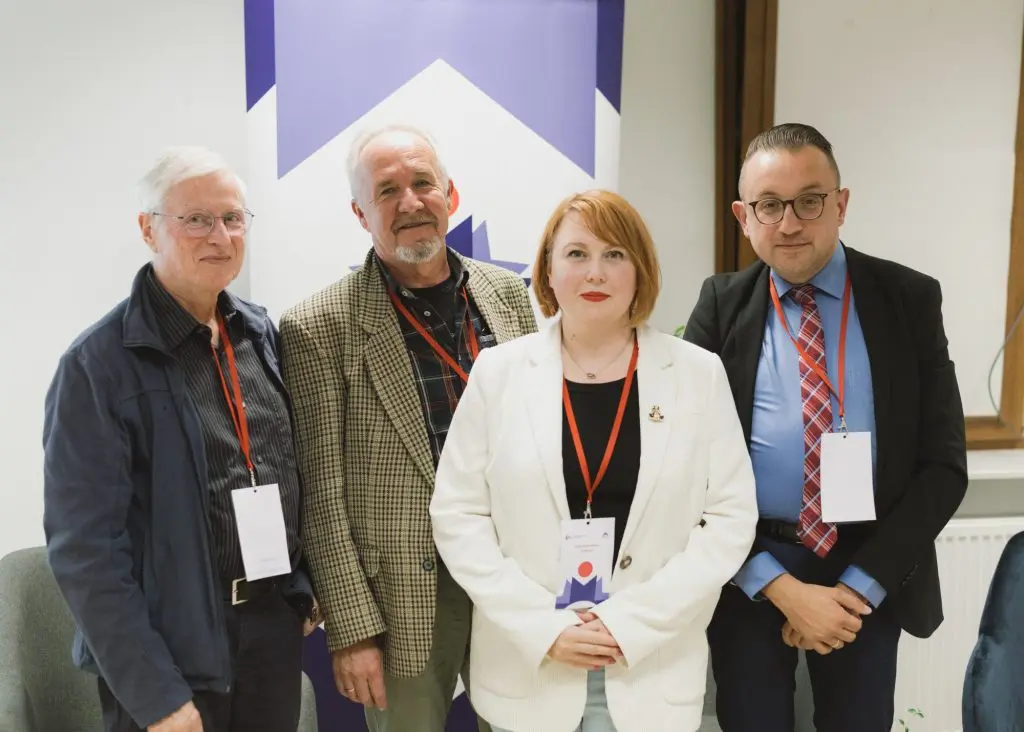
What should be done? The participants in the discussion suggest working with all stakeholders, including society, politicians, and the media, and creatively presenting straightforward truths. They also suggest discussing the gender dimensions in Belarusian identity, national revival, and related topics. Additionally, it’s important to remember that politicians serve as role models for citizens.
Is Belarus occupied, or is Belarus a co-aggressor?
The discussion on Belarus in the context of the Ukraine war was moderated by Kamil Kłysiński, an expert at the Center for Eastern Studies.
What is Belarus’ responsibility in the war in Ukraine? When it comes to Belarus, the world lacks consistency: the authorities are responsible for repressing Belarusians, yet the blame for the war is often placed on all Belarusians.
Some label Belarus as a co-aggressor state, while others see it as an occupied country. In such cases, international law is rigid and slow to adapt, and its instruments do not effectively protect Belarusians. However, while Belarus cannot definitively be termed “legally occupied”, there are numerous indications of de facto occupation, particularly evident in the actions of siloviki and certain individuals connected to the regime.
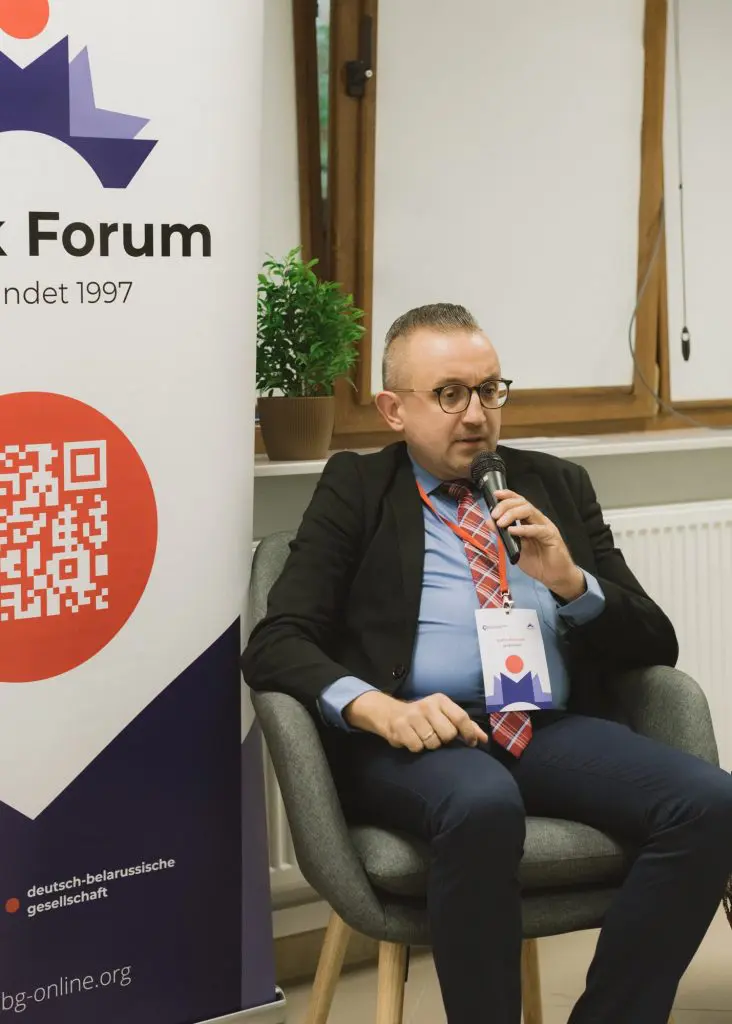
Belarusians should address their co-aggressor status with reflection, drawing from the experiences of other nations, including those during World War I and World War II. In a similar vein, while France under the Vichy regime was not officially occupied by the Nazis, it operated in alignment with Nazi interests. Conversely, Free France, led by Charles de Gaulle, emerged triumphant from World War II.
Foreigners need to be reminded of the illegitimacy of the Belarusian regime, the protests, and the significant number of victims of repression. The goal should be to reposition Belarus “from the status of a co-aggressor to a different status” and to promote the idea that “Belarus is not an aggressor nation”, even going as far as claiming that “the Belarusian army is not an aggressor force”. Sufficient examples exist for this, and new ones occasionally arise from unexpected sources. For instance, the day before the Warsaw meeting, Belarusian border guards lowered their flag during the all-Ukrainian minute of silence for the fallen heroes.
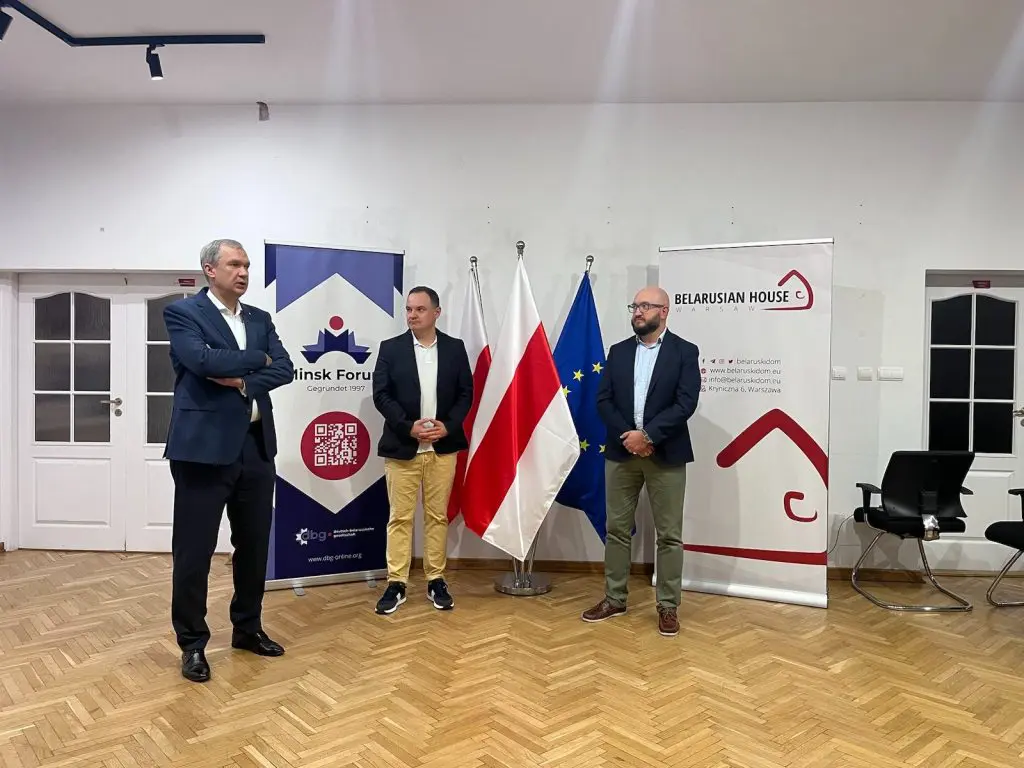
The matter of imposing sanctions for the war in Ukraine is a “sensitive issue” that would benefit from a thorough consideration of all relevant factors. If we opt to “shut down the entire industry of Belarus”, won’t we potentially face a situation where rather than bleeding the regime out, we will get disgruntled Salihorsk miners who “will go beat us all with their helmets because they have nothing to feed the children”? And for personal sanctions to be effective, ought they to be imposed indefinitely, and should the responsibility extend to the sanctioned individuals’ offspring?
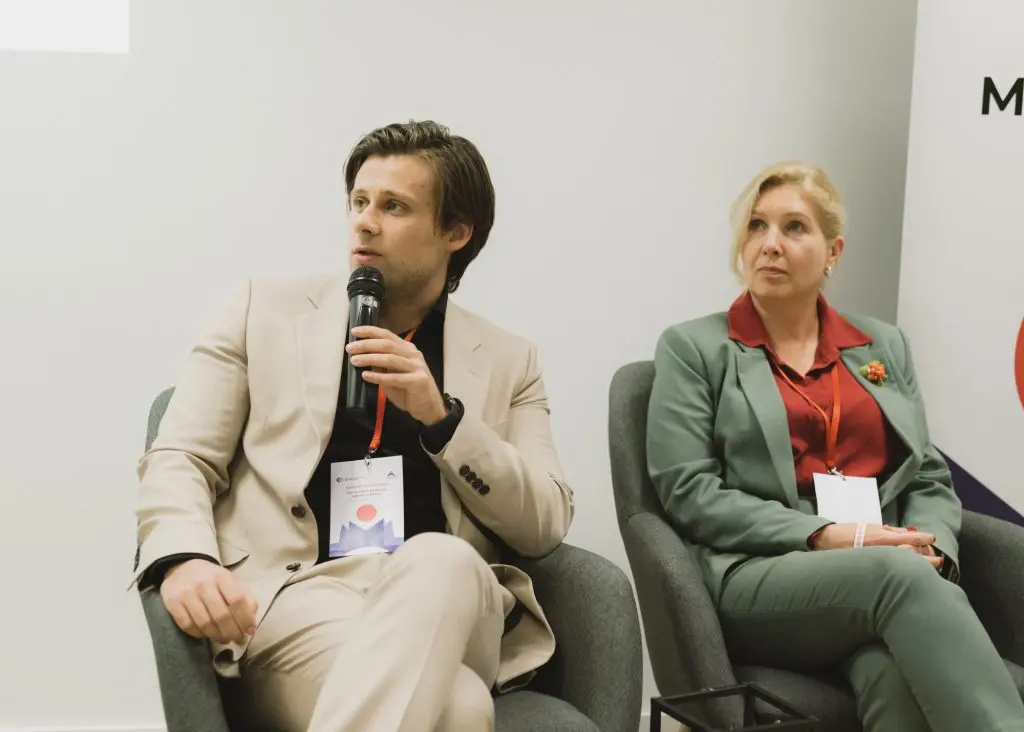
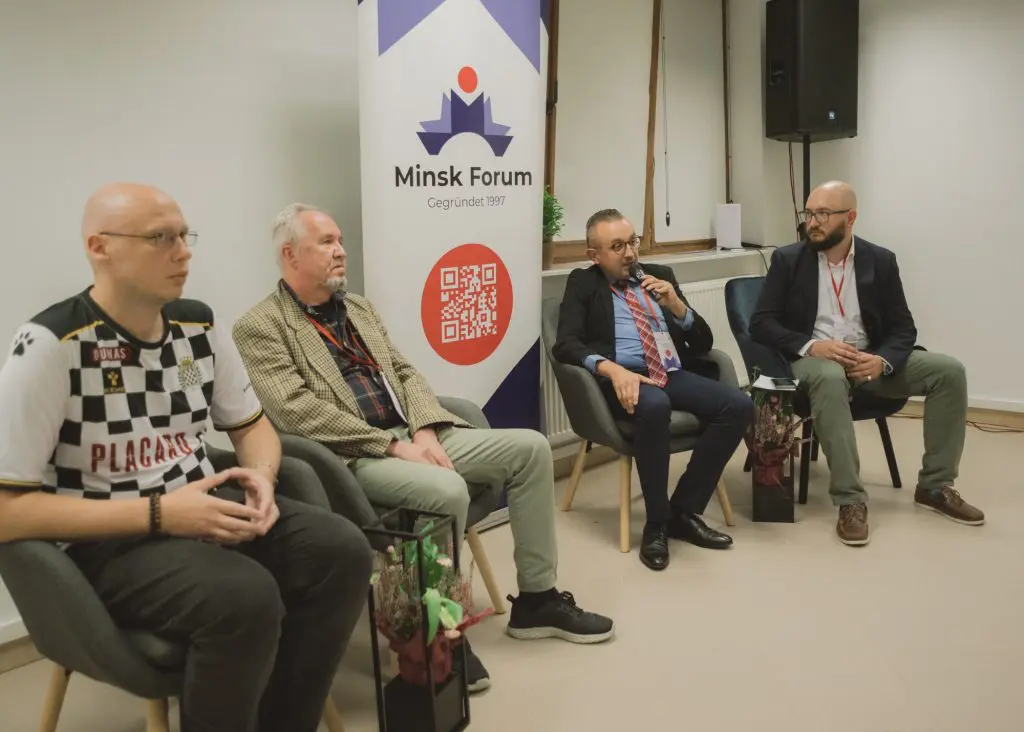
However, the participants of the discussion advised the democratic forces not only to consider short-term measures but also to focus on providing sustained financial support for civil initiatives, developing a pool of skilled individuals, and emphasizing the idea that “change in Belarus will originate from within Belarus itself”. Furthermore, it is necessary to advocate for a program that facilitates the safe evacuation and rehabilitation of political prisoners upon their release in Belarus. Additionally, there should be proposals to enhance the more active and secure utilization of the resources of those activists and communities that are still in Belarus.